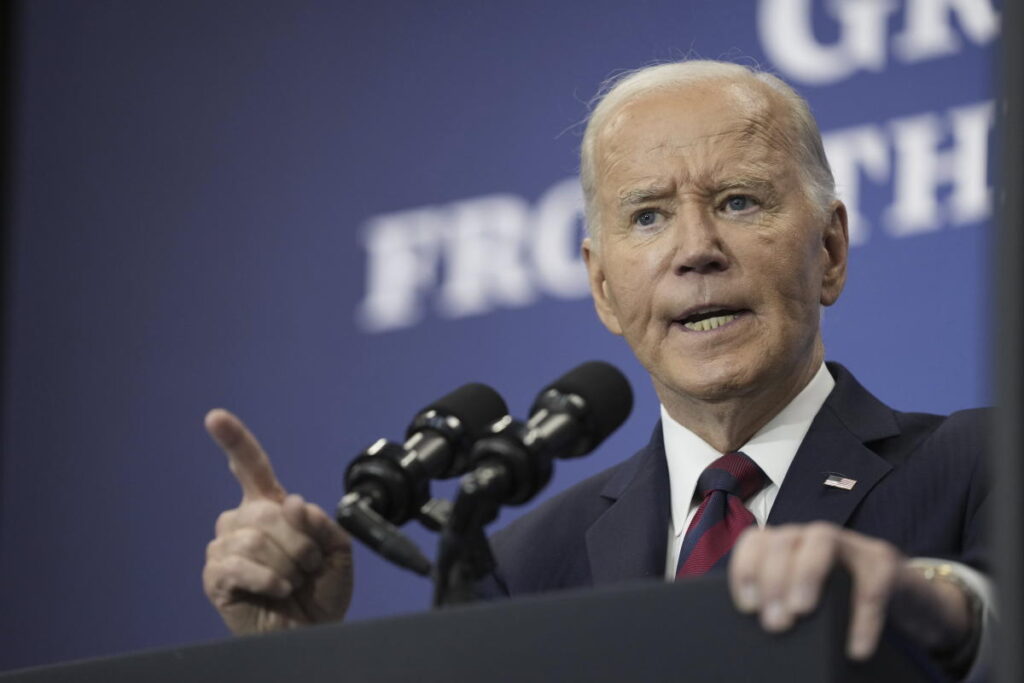In a recent speech at the Brookings Institution, President Joe Biden reflected on his administration’s pandemic relief efforts and expressed regret for not adding his name to the relief checks sent out in 2021. He acknowledged that his predecessor, Donald Trump, had reaped significant political benefits by attaching his name to checks issued during the earlier stages of the COVID-19 pandemic, which he believed helped reinforce public perception of economic support. Biden described himself as “stupid” for not taking a similar approach, emphasizing that branding plays a critical role in how government initiatives are perceived by the public. His remarks came as he sought to bolster his economic legacy while simultaneously preparing for the upcoming transition of power.
Throughout his address, Biden defended his economic record and highlighted positive trends during his presidency, such as the creation of 16 million jobs, funding for infrastructure projects, and investments in renewable energy. He acknowledged, however, that public sentiment about the economy remained largely negative due to lingering inflation issues, which peaked in 2022. Surveys indicated that a significant portion of voters viewed the economy as “poor” or “not so good.” As a result, Biden faced challenges in communicating successes, even amidst substantial economic recovery and growth initiatives. He pointed out that Trump was poised to take over a well-performing economy, warning that perceptions of economic vitality could be swayed by ongoing inflation and other struggles faced by everyday Americans.
Biden positioned his record as a benchmark for the incoming administration, asserting that Trump would inherit what he called the “strongest economy in modern history.” He cited improvements such as the lowering inflation rate, a healthy unemployment rate of 4.2%, and a surge in new business applications. These figures are intended to frame the economic landscape as an opportunity for the next administration to build upon rather than dismantle. The president asserted that the narrative surrounding economic performance under his watch should not be overshadowed by the immediate concerns that voters expressed regarding inflation and cost of living challenges.
In his critique of Trump and his economic policies, Biden warned of potential ramifications stemming from proposed tax cuts and tariffs on foreign imports. Biden contended that tax cuts could lead to vast deficits and necessitate harmful spending cuts, which would ultimately affect the American public. Additionally, his caution extended to ideas regarding tariffs, with Treasury Secretary Janet Yellen echoing concerns about how such policies would drive up prices for consumers. Biden’s emphasis on economic stability serves not only to defend his achievements but also to set the stage for a discussion about the potential consequences of reversing or altering existing economic principles.
Biden also took aim at Trump’s allies who have organized around Project 2025, a policy initiative primarily stemming from the conservative Heritage Foundation that seeks a comprehensive government overhaul. Even as Trump distanced himself from the initiative, Biden articulated his belief that elements of this project could lead to adverse economic consequences. His prayerful admonition that Trump should abandon this project underscores a broader concern about maintaining effective governance with an uninterrupted focus on economic recovery.
As the transition closes in on the new administration, Biden’s remarks reveal an internal struggle with not only how economic narratives are communicated but also how the actions of political leaders can impact public perception. While he aimed to remind voters of his successes, the overarching reality remained that challenges such as inflation weighed heavily on everyday Americans, complicating any message of triumph. Ultimately, Biden’s reflective speech served as both a defense of his administration’s record and a cautionary tale about the political implications of economic branding, setting a critical tone for Trump’s incoming presidency and the possible directions it might take.

